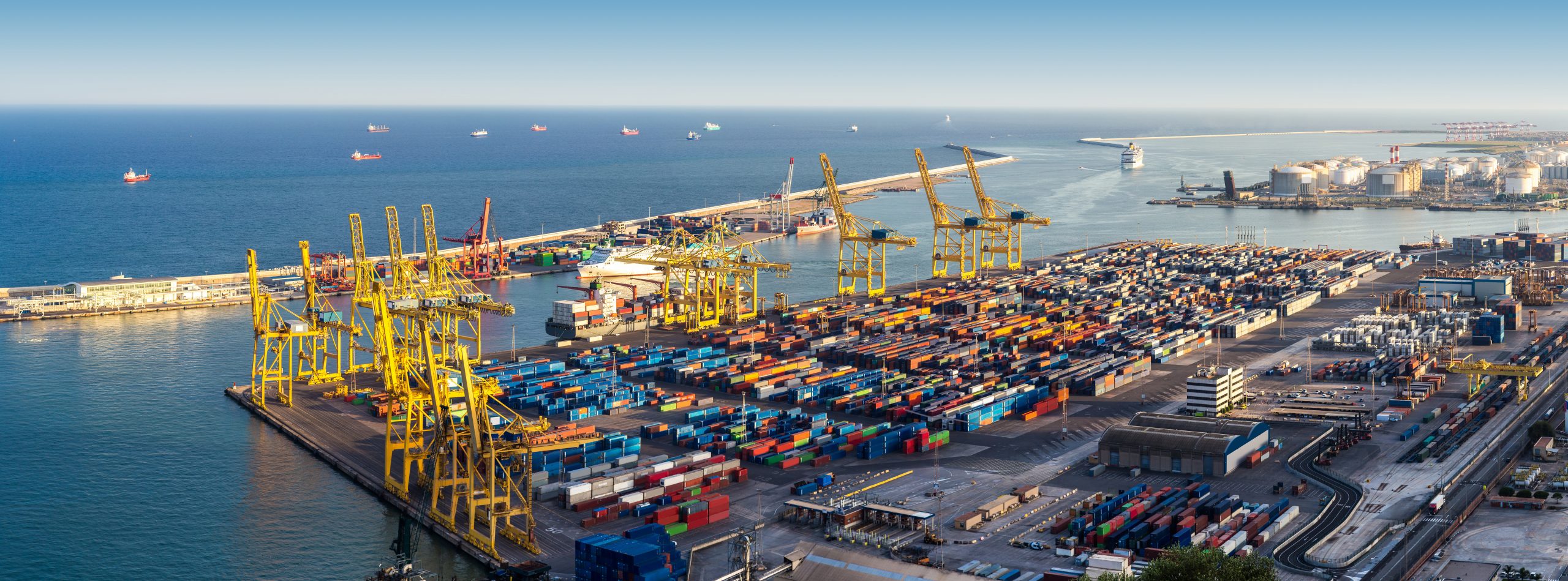OPS Solution in the Port de Barcelona: Maritime Energy Transition in Action

Barcelona's port, along with Hamburg, is a pioneer in Europe for implementing Onshore Power Supply (OPS). This system enables an electrical connection between the dock and ships, allowing them to turn off their auxiliary engines. This results in significant savings in CO2 emissions while also reducing noise pollution.
Actemium at the Heart of a Joint Venture
Following a call for tenders in 2022, the Port of Barcelona selected a group of companies (UTE/Temporary Union of Companies) led by Omexom Spain to implement the electrical connection of ferries at the dock using an OPS solution. Within this group, Actemium Brest was responsible for the design and construction of a high-voltage conversion station and its containerization, as well as a safety-related automation system. This latter aspect will notably allow connection operations to be carried out by non-authorized personnel.
A Conversion Station in 5 Containers
This project, including a high-voltage power station, was commissioned in January 2025. The conversion station consists of 5 containers (3 in the lower part, 2 in the upper part) which allow, in succession, the transformation of the voltage coming from an upstream delivery point delivering 25Kv of voltage and 50Hz of frequency, then the conversion from 50Hz to 60Hz, and finally the voltage increase to 6.6kV and 11kV. With a power of 4MVA, the high-voltage power station will supply two connection points on two quays of the port intended for ferries.
Challenges Overcome
This project presented numerous challenges, including:
- Administrative: The establishment of a UTE and the management of Spanish technical regulations proved complex, both legally and contractually.
- Organizational: Project management had to adapt to local suppliers and the partnership system induced by the creation of a UTE.
- Time-related: The entire project was carried out in just one and a half years: 6 months of studies, 12 months of installation, and 1 month of commissioning. This time constraint had to be managed for the ordering of equipment, particularly the converters.
Strong Capital of Acquired Knowledge
Actemium Brest, which mobilized around ten people on this project (5 in the design office and 4 on site), has capitalized on its skills and know-how in OPS, whether in mastering current conversion, automation and high voltage, or in its ability to carry out “shelter” (container) integration and to project itself abroad.
With the Barcelona project, the Brest-based company is consolidating its expertise already acquired on similar projects in Dunkirk in 2019 for container ships and Le Havre for cruise ships (currently being finalized)
